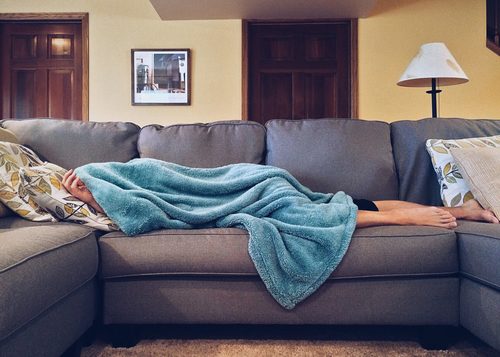Sleep: Your life depends on it!

1 in 3 Americans aren’t getting adequate sleep at night. According to The National Sleep Foundation, adults 26-64 should plan to get a solid 7-9 hours each night and anyone above the age of 65 should get at least 7-8 hours.
Getting a good night’s sleep is easier said than done, but it can be dangerous for your health and wellness if you don’t make it a priority. Sleep can improve your personal and professional life, your creativity, your decision making, your personal relationships, and so much more – it can even help you live longer.
Studies directly link premature death and short sleep. Chronic diseases are also linked to a lack of sleep. What are some of the other benefits of getting a good night’s sleep? Check out these tips below:
Reduce chronic illness: Not getting enough sleep can make you sicker. At least 10 chronic health conditions have been linked to a lack of sleep. As you age, your risk for these conditions becomes greater, making your sleep schedule even more important.
Cut down on stress: The more you sleep, the less stress you’ll feel. Getting at least 8 hours of shut-eye a night can decrease stress by 21%.
Improve your body’s healing abilities: Sleep not only makes you live longer, but it also helps you heal faster. Getting quality sleep when you’re injured can heal your body 16% faster.
Get ahead of sleep apnea: Sleep apnea is found in nearly 1 in 4 men and nearly 1 in 10 women. This condition has been shown to lower life expectancy, but you can help your body avoid the condition by making a full night’s sleep a part of your regular routine.
Fight neuroticism: If you suffer from neuroticism, sleep can help calm your nerves. Try getting some shut-eye to calm down and live a longer life.
Restore cognitive functions: Don’t skimp on your sleep. Not getting at least 6 hours of sleep a night makes your body function in a cognitive deficit equal to 2 nights without sleep.
Prevent heart-related problems: Reduce your risk of heart-related diseases and illnesses by getting at least 7-8 hours of sleep a night.
Avoid poor decision making: Decision fatigue is the exhaustion we feel after making too many decisions. Not getting enough sleep exacerbates our brain even faster, with 26% of adults who don’t get enough sleep reporting a higher risk of poor decision making.
Curb snacking and prevent obesity: Avoid late-night snacking tendencies by putting yourself to sleep before the cravings kick in. Getting a full night’s sleep reduces your chances of both obesity and snacking.
Reduce the risk of drinking: While drinking may make you feel drowsy, it prevents you from getting a full REM sleep. Skip the wine before bed and get a good night’s sleep instead.
This is a guest post by Karlyn McKell, a writer who specializes in wellness and insurance. She believes the best ingredient for success is getting a great night’s sleep the night before. Bestow.com has more tips on the benefits of a good night’s sleep with the visual on this page. Check it out!
Molly Larkin is the co-author of the international best-seller “The Wind Is My Mother; The Life and Teachings of a Native American Shaman” and other books on health. She is passionate about helping people live life to their fullest potential through her classes, healing practice and blog at www.MollyLarkin.com

